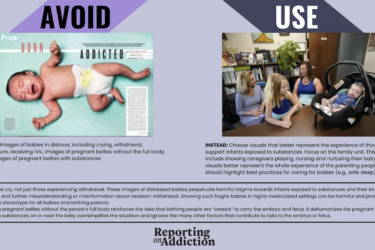 Occasionally doctors are apt to make claims, especially when money is involved, that are not based in science or fact. That’s why we need health journalists, said Otis Brawley, M.D., today’s Health Journalism 2019 spotlight speaker. We need journalists who understand medicine to be skeptical and not take these claims at face value.
Occasionally doctors are apt to make claims, especially when money is involved, that are not based in science or fact. That’s why we need health journalists, said Otis Brawley, M.D., today’s Health Journalism 2019 spotlight speaker. We need journalists who understand medicine to be skeptical and not take these claims at face value.
Brawley is a Bloomberg Distinguished Professor at Johns Hopkins University, where he researches health disparities in cancer, examining which populations are most affected and quantifying how many people are impacted negatively.
This evening’s speech at the official conference welcome and kickoff session will expand on health disparities and their impact, he said in an interview.
For example, research indicates that college-educated Americans are less likely to die of cancers than those who didn’t attend college. If everyone had the same opportunities and access to resources as those who are college-educated, then the number of people who die from cancer would be cut by about 25%, Brawley estimated.
Communities hit hard by health disparities often lack access to the best prevention screenings and treatments, he said.
“If you screen and treat someone of cancer now, you are preventing someone’s death 10 to 12 years later,” Brawley said.
 Despite commonly held beliefs, socioeconomic factors are a better predictor of health disparities than race. While early death rates are lower for white Americans in comparison to black Americans, Brawley believes many disadvantaged white Americans are more likely to be negatively affected by health disparities.
Despite commonly held beliefs, socioeconomic factors are a better predictor of health disparities than race. While early death rates are lower for white Americans in comparison to black Americans, Brawley believes many disadvantaged white Americans are more likely to be negatively affected by health disparities.
“It’s not just a black thing,” Brawley said.
Born in Detroit, Brawley’s career has taken him from the northern United States to the south and back again. He graduated from the Pritzker School of Medicine at the University of Chicago, also completing an internal medicine residency at University Hospitals of Cleveland, Case-Western Reserve University and a medical oncology fellowship at the National Cancer Institute. He was an oncology and hematology professor and deputy director for cancer control at the Winship Cancer Institute at Emory University in Atlanta. From July 2007 to November 2018, he served as the American Cancer Society’s chief medical and science officer and executive vice president.
In 2012, Brawley wrote a book, “How We Do Harm: A Doctor Breaks Ranks About Being Sick in America.” (Read this New York Times review.) The book highlights and confronts the flaws, inequities and inconsistencies that make up the American health care system.
The system is failure, he said in his keynote speech at Health Journalism 2012, because it plays into the profit motive of doctors, pharmaceutical companies, insurance companies and even the whims of some patients who consume too many health care services. Brawley is a proponent of “rational” health care – but not “rationing” health care.
Here at Health Journalism 2019, he’s planning on focusing on the disparities. He also plans to stress the importance of cancer prevention and “wise and appropriate screenings.”
“The population needs to be concerned about health care,” Brawley said.






